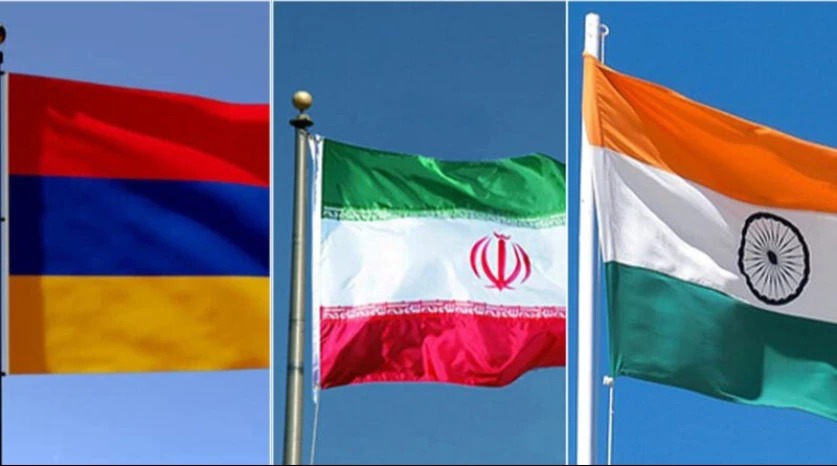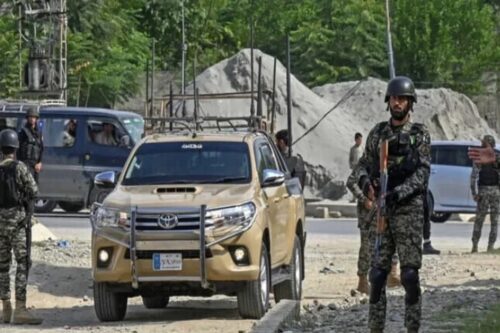
Report: Armenia’s, India’s, and Iran’s interests in preserving Armenia’s territorial integrity are aligned
The South Caucasus is an important Eurasian political and economic hub, Observer Research Foundation said in a report. As noted, control over the South Caucasus grants access to the Black Sea and the Caspian Sea basin, serving as a gateway to Central Asia and the Greater Middle East. Given its strategic importance, regional powers such as Russia, Turkey, and Iran have vied for influence in the South Caucasus for centuries.
In recent years, the demand for alternative transport corridors has surged amid the ongoing Ukraine war, sanctions on Russia, conflicts in the West Asia (Middle East) region, and the resulting difficulties with traditional supply routes such as the Suez Canal. Consequently, the South Caucasus has become increasingly important as a link between Asia, Europe, and Russia.
For India, there is a unique opportunity to contribute to stability in its extended neighborhood and to ensure its presence in the strategic communication routes that could be a game-changer in the future.
Based on geopolitical considerations, India has prioritized its relations with Armenia, with which it shares interests such as connectivity projects, and common security challenges emanating from the Turkey-Azerbaijan-Pakistan alliance.
Today, Armenia is the largest buyer of Indian indigenous weapons, and bilateral defense cooperation is growing. Armenia’s success in this regard is also important for India to position itself as a player in the global defense market. Given the growing sectors of Armenia’s economy and its competent workforce, there is ample room to develop mutually beneficial economic ties. Armenia, the only South Caucasus member of the Eurasian Economic Union (EAEU), can also act as a bridge between India and the larger Eurasian market.
Given its strategic location, Armenia is a balancing factor against Turkish expansionist policies and the pan-Turkic agenda in the South Caucasus and beyond, which carry security implications similarly for India. Due to its location, Armenia can serve as an alternative transit route from India to Europe. As India aspires to be an important pillar in the future multipolar world, having access to the communication routes in this region and passing through a friendly country will be beneficial.
As such, it is important for India that the South Caucasus region remains stable and that Armenia maintains its security and territorial integrity. However, Azerbaijan continues to make maximalist demands from Armenia and has repeatedly threatened to use force to open the so-called “Zangezur corridor”. The project also perfectly aligns with the interests of Turkey, which views it as a means to extend its influence in the South Caucasus and in Central Asia. Erdoğan has stated that the opening of the “Zangezur corridor” is a “strategic issue” for Turkey, and the Turkish transport and infrastructure minister has said that it will benefit the entire “Turkic world.”
If the borders were opened and connectivity projects in the region were implemented as per the Crossroads of Peace framework—essentially, in good faith and without infringing on any country’s territorial integrity—this would boost economic cooperation and trade, benefitting all countries in the region. However, mistrust, power imbalance, and Azerbaijan’s stated ambitions indicate that Azerbaijan will likely use its military advantage to implement its version of the project. The “Zangezur corridor” project presents security risks affecting Armenia, Iran, and India. Iran, concerned about the threat to the Armenia-Iran border and the prospects of Turkish dominance in the region, has expressed strong objection to the project. It has also reaffirmed support for Armenia’s territorial integrity and noted that any border changes in the region are unacceptable.
Notably, Iran has taken measures to counter the project, such as offering an alternative route through its territory, opening a consulate in Syunik, and conducting military exercises on the border. Should Azerbaijan attempt to use force to achieve its goals, it may trigger another war in the region with the involvement of multiple actors. The realization of this project on Azerbaijan’s terms will ultimately lead to the disappearance of the Armenia-Iran border. Consequently, this will block Indian weapons transfer to Armenia through Iran and impact India’s prospects for any alternative routes running through Armenia, including the Armenian section of the International North-South Transport Corridor (INSTC), leaving no alternatives to Azerbaijani-controlled routes in this region. In the long run, Turkey’s dominance in the region would change the broader geopolitics of Central Asia and the South Caucasus. As such, Armenia’s, India’s, and Iran’s interests in preventing infringement on the Armenia-Iran border are aligned.


